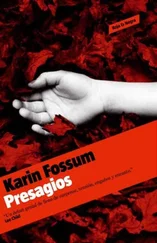“She said, ‘No.’”
“What do you mean?” Skarre pressed. “Simply ‘No’?”
“She was in denial. She said, ‘No, you’ve made a mistake.’ So the doctor had to tell her again that the boy had Down syndrome. That there was no room for doubt. Because that is what they often think, initially. Is it really true? Are you one hundred percent sure? And Lord only knows, it’s a massive comedown. From the greatest joy to the deepest desperation. The child has finally been born after nine long months, but it’s not entirely healthy. I never get used to it,” she told them. “I have to steel myself before I go in. I guess you have to do that in your job as well. I mean, you must have given some people terrible news. So perhaps you know how I feel.”
“Yes, we do,” Sejer said in a gentle voice.
“We comforted them as best we could,” she continued. “We explained her rights in terms of the future and assured them that the boy would bring them both joy and laughter. But she just kept saying no, that we had made a mistake. That time would prove that we were wrong. He would get better; he was just a bit tired. I felt for her so much, and I’ve had to tell people worse things in my role as a midwife. It’s just part of the job.”
“What about the father?” Skarre wondered. “Nicolai Brandt? How did he react?”
She thought for a moment, casting her mind back. She recalled the young man with the thin hair.
“He was incredibly quiet. Not the chatty type. But at least he understood what we were telling them, and he certainly never questioned our judgment. I felt for him too, but I remember that he did manage to muster some hope for the future. ‘We should be happy for the child we’ve got,’ he said, hugging her and the child. I can’t remember if he was crying. The doctor gave them as much information as possible to instill hope. He explained that there were cases where children with Down syndrome had passed their exams, with good grades, after only three years of high school. And some had passed their driver’s license test. I can’t get over what you just told me, that he drowned in a pond. I don’t know what your thoughts are on the matter. But let’s hope that you are wrong. I mean, if you suspect the parents in any way. You’re asking all these questions for a reason, and it’s making me nervous. Between you and me, Carmen Zita’s reaction was certainly unusual. Like she was in her own world, and it was impossible to get through. Over the years, I’ve had to tell many people similar things, and no one has reacted quite like her.”
“How long was she in the maternity ward?”
“For five days. I remember her parents came to collect them, and her father asked to talk to the doctor, which he did. He seemed very strong and composed, and said that he would help in any way possible. I was so happy to hear that, because he seemed so dynamic.”
Sejer sat in silence for a short while. He glanced up at the photographs of all the babies on the bulletin board.
“I’m assuming they never sent you a photograph,” he said with a fleeting smile.
“No,” she confirmed. “I never got a picture of Tommy. People send photographs because they are proud, happy, and grateful. But Carmen Zita left the ward after five days, and she was not in the slightest bit proud or grateful.”
Twenty-fifth of August. Morning, the funeral.
Nicolai stood in the doorway and looked at her, and he didn’t like what he saw. Today was the day when Tommy was to be buried. And Carmen was going to say goodbye in a wholly inappropriate dress. Short and tight with a scooped neck, it left nothing to the imagination. She normally wore it to parties, and now it just looked improper. But he also saw how beautiful she was — perfect, like a little doll. And it was clear to him why he had fallen for this girl with the white hair. No boy in the world would say no to Carmen, he thought. Not a single one. And I am no exception.
Carmen was in the bathroom and pulled herself away from her own reflection.
“You should have put something else on,” she complained. “It’s so embarrassing; we should have gotten a suit. People will wonder why you’re not dressed up.”
“Fine, but I don’t have a suit,” he said, feeling hurt. “You always complain, but I do as best I can. And clothes aren’t important anyway. This is about Tommy.”
Carmen turned back to the mirror and stared at herself. Yes, she was satisfied, Nicolai thought. Tommy was going to be buried and Carmen was satisfied with how she looked. It really bothered him. He leaned against the door frame. He knew that he wasn’t good enough and was deeply ashamed of his shabby clothes. He heard a car pull into the yard and went over to the window and looked out. He waved at the people in the car and went out to meet them. Pappa Zita’s sturdy frame towered over the top step; behind him was Elsa in a navy blue suit.
“How are you, my boy?” Zita asked, holding his hand. He held it for a long time, while a single tear trickled down his cheek. Then he crossed the threshold and came in. “This is a sad, sad day,” he said, his eyes piercing through Nicolai. “We have to be strong.”
Nicolai didn’t answer. There was nothing to say, other than it was the blackest day of his life. He had not been so sad since the day his parents died in their Cessna, Bird Dog , in a violent storm. It all came back to him now with full force. Zita reached out his hand again but this time ruffled his hair. Nicolai did not turn away. He had always liked Zita and knew this was a clumsy caress from a man in mourning.
“Is Carmen ready?” Zita asked and walked down the hallway.
“Yes, she is,” he said with a wan smile, wondering whether his parents-in-law would react to her daring dress. Just then, Carmen came out of the bathroom, tottering on high heels. The black dress was so tight that any movement was restricted to tiny steps across the floor. She gave her father a long hug, swallowed by his generous embrace and weeping bitter tears.
“Put a jacket on,” her father said firmly. “Your dress is beautiful, but it’s too low and not appropriate for church.”
Carmen made a disappointed face and protested vociferously. It was far too warm to wear a jacket, and she didn’t like her father’s objections. “What kind of jacket do you mean?” Carmen whined. “The dress won’t be visible otherwise.”
“A cardigan,” her father said. “Surely you’ve got a cardigan?”
“She does,” said Nicolai, who had sat down on the sofa. “Your dress — it’s not a party we’re going to.”
“I dressed up for Tommy,” Carmen said, smarting. “And all you do is complain.” She pouted like she always did when she didn’t get her own way.
Nicolai closed his eyes and groaned. He couldn’t believe that they were in this situation. They were about to go to church to bury Tommy, and this was the end. He wanted so much to be strong, to be dignified in his grief. But more than anything, he just wanted to let go and cry like a baby. Carmen turned on her heel and disappeared into the bedroom. They could hear her slamming doors and drawers. After a while she came out again with a cardigan over her arm.
“Put it on,” her father said sternly. “It’s a church and you need to be covered. People will react if you sit there with bare shoulders.”
“If it gets too hot, I’m going to take it off,” Carmen retorted. “I don’t care what you say. I’m the one who’s lost my baby, so I decide.”
“OK. The dress is lovely,” her father conceded, “but it is better suited to other occasions. Do you have anything simpler, a little more respectable?”
“No,” Carmen said petulantly. “This dress fits all the rules. It’s black. All my other dresses are bright and colorful. Pink and blue and yellow. And I don’t want to wear pants on a day like today.”
Читать дальше












